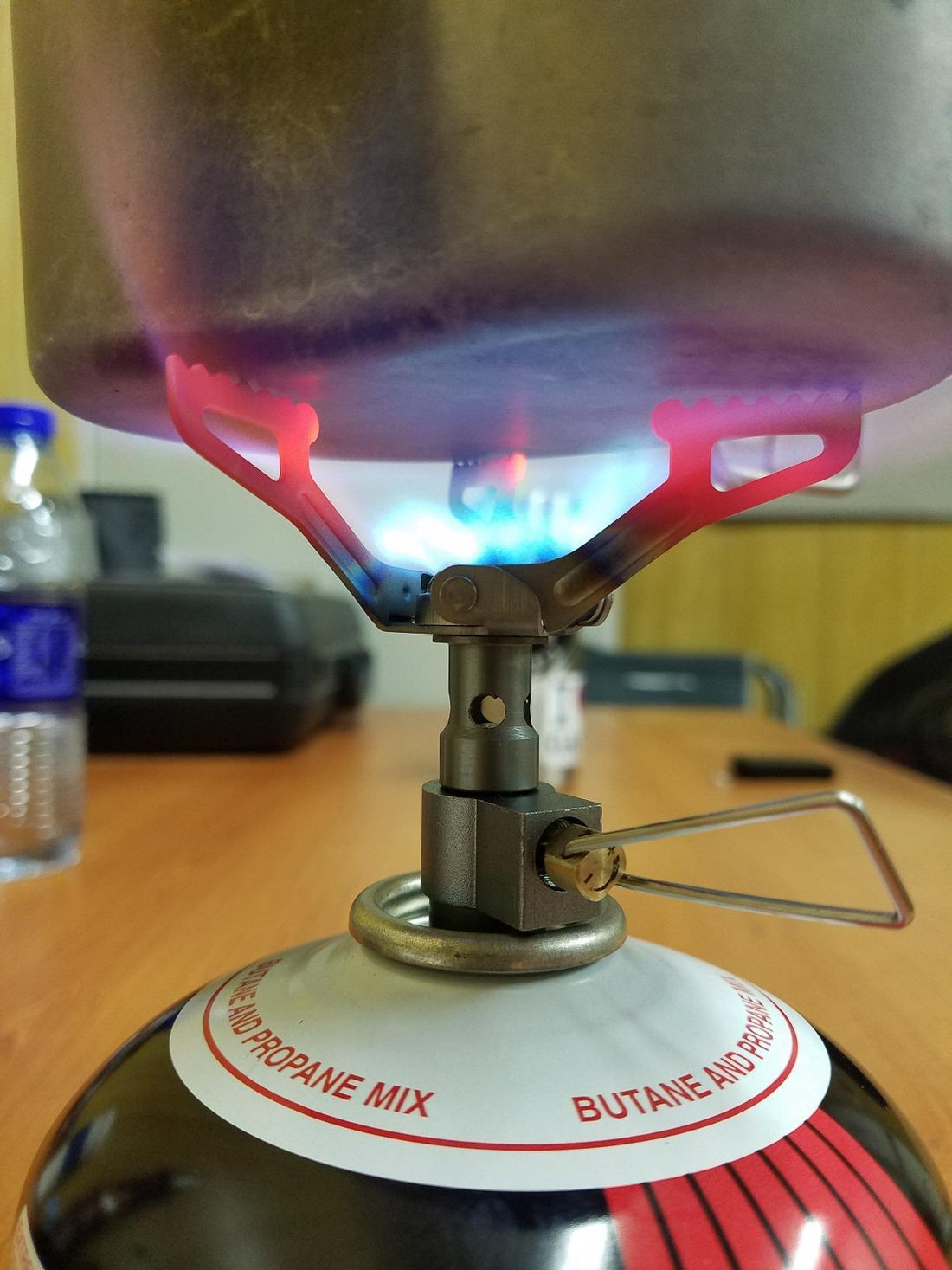
The BRS 3000t: Ultralight, Ultra-Cheap, and Ultra-Unreliable
BY ELISE OTT
In late 2018, I was feverishly researching ultralight gear to take with me on the Pacific Crest Trail, and one stove popped into my research over and over again. Lauded as a unicorn among backpacking stoves, the BRS 3000t ultralight titanium stove weighed in at just 27 grams (less than one ounce). And for just $17 (probably less back then), I became its proud owner. It seemed too good to be true. With dreams of having the lightest pack on the PCT, I unwrapped my Amazon package and promptly prepared a packet of instant ramen as a test meal.
The miniscule supports atop the stove did manage to hold my wide cook pot (at least on my level kitchen counter), but I could foresee it being quite precarious in other environments. I never got that far. I turned on the stove and lit the gas. In my windless kitchen, the water began boiling after about 5 minutes. Satisfied with my test, I attempted to turn the stove off, but the valve would not close. I turned and turned in both directions until I eventually resorted to unscrewing the entire stove from the fuel canister. It appeared I had gotten one of the faulty BRS 3000ts.
I wasn’t alone. Some thru-hikers report, in online reviews, using theirs for thousands of miles. Others are lucky if they get a few boils out of it before something breaks. The gamble you take when ordering this ultralight, ultra-cheap stove is that they are also incredibly unreliable. And even the well-made ones are notoriously inefficient. At best, you’ll use half a fuel can to boil water in windy conditions. At worst, you’ll never reach a boil.
My opinion? Save your $17 and put it toward an efficient stove that will last. If you have to buy three $17 stoves just to get one that works, that’s not a $17 stove after all.

![Trails Magazine Issue 12 - The Photography Issue [PRE-ORDER]](http://trailsmag.net/cdn/shop/files/2025_07_27_Wichelns_Issue11Shoot-39.jpg?v=1753807234&width=533)






1 comment
So basically, you had one defective item, which could occurs with literally any brand, so it’s unreliable ?
Amazing article